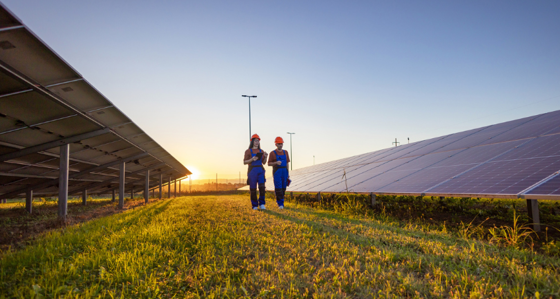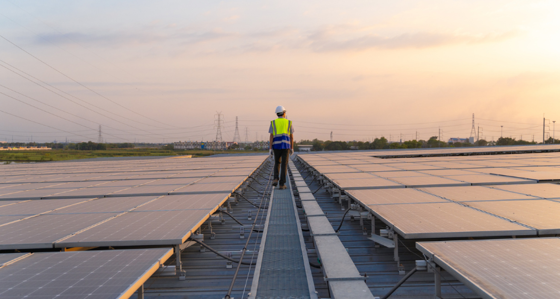
Retail energy suppliers - a way forward?
22 October 2021
As so many articles are flagging, the energy retail market feels incredibly fractious right now with real frustrations on all sides and the need (but not necessarily the ability) to move at pace to navigate through these challenging times.
And all the while, customers are struggling to unpick their journeys through the Supplier of Last Resort (SoLR) process and are finding it hard to know who to trust as PCW’s withdraw and previous guidance to switch proves difficult with a lack of options available.
Stepping back from the frustration and the noise, there are 4 key themes that I find really striking:
- All of the efforts to open up the market over the last few years, have been rapidly and dramatically unwound. The vast majority of new entrants have already folded or will soon collapse. With them will go lots of creative thinking, new platforms and capabilities and some very bruised investors who will be slow to return, if indeed they ever do. Scottish Power recently signalled their belief that there may be as few as 5-6 suppliers left by the end of winter, even more harsh than the Baringa prediction of ‘as few as 10’. These aren’t the same 5-6 companies as before, but nonetheless we seem to be moving back to a market dominated by a ‘Big 6’ which can’t be great for competition or customers.
- Industry estimates suggest over £5bn of cost - which covers hedges, credit balances and the admin costs of managing the SoLR process - is being forced upon energy suppliers as the cost of failures are mutualised. This is an incredible amount for an industry that made a collective loss last year. Ofgem states that 'customers are protected if their supplier fails’, in practice the most vulnerable customers will suffer the most. Why? Very simply, customers pay. You pay. Your Gran pays. The poorest in the country pay. Equally. Effectively customers indemnify the industry against failure. Clawing this cost back through your energy bill is a regressive mechanism as it’s not based on any level of means testing and it disproportionately penalises those who can least afford it. These extreme market conditions weren’t foreseen when the mutulisation mechanism was designed, mechanisms to rebalance and smooth this are urgently needed.
- I’m not going to criticise the price cap as I believe some level of price regulation could have a valuable place in the market. However, it is striking that suppliers used to hedge up to3 years out to help smooth out wholesale price fluctuations while now the good ones hedge to the cap, closer to 6-12 months out. Others don’t hedge at all, effectively gambling with customer credit balances on the wholesale markets as part of their 'sell long, buy short' strategy. This risk has to be designed out, both to prevent disproportionate risk taking with customer cash and to create more stability by encouraging longer term hedging.
- The role that energy suppliers need to play in driving the economy to net zero has suffered a monumental set-back. For every day we watch suppliers fight for survival, we also watch our climate ambitions slip. Suppliers simply can't innovate, secure net zero investment or forge long term partnerships with customers to reduce the carbon footprint of their homes and businesses while they invest all their waking hours in surviving. This is a huge threat to our climate ambitions and the future generations who depend on us for immediate action, and places us in an awkward position as hosts with COP26 just around the corner.
These are painful observations, but it’s even more painful to accept that we simply we don’t have the solid foundations we need to make progress against our Net Zero ambitions with confidence and at pace.
As I’ve highlighted before, a functioning market needs to allow space for suppliers to make a fair margin and controls to ensure only those who are fit and resourced to operate in the market are allowed to operate. Meanwhile market participants need space to innovate without fear that their costs and returns will be regulated away and the ability to create longer term partnerships with customers to smooth the payback period of home investments. Plus, vulnerable customers can’t be asked to pay disproportionately for failures that are no fault of their own.
So let’s move on from the fractious conversations with all their frustrations and let’s focus hard on getting through this crisis with minimum damage to our treasured liberalised market, protecting the most vulnerable and focusing on delivering net zero.
And please - let’s make sure this can’t happen again.
To understand the impact in more detail or to find out more about our work in the energy retail sector, please contact us.
Our Experts

Related Insights

Dissecting the REMA decision
Three years in the making, the Review of Electricity Market Arrangements (REMA) decision has now been published: the UK Government has decided to retain the national wholesale price.
Read more
What might a reformed GB national power market look like under REMA?
Discover how a reformed national market is likely to include significant changes to current market arrangements, with material impacts for market participants.
Read more
Investing in uncertainty: European power market outlook 2025
Our latest outlook points to a more uncertain energy transition, shaped by political and economic volatility across Europe in the form of Trade Wars, Populism and Remilitarisation.
Read more
REMA and investing in GB power market under uncertainty
Learn about the opportunities and challenges of investing in the GB power market under uncertainty and how Baringa can help
Read moreIs digital and AI delivering what your business needs?
Digital and AI can solve your toughest challenges and elevate your business performance. But success isn’t always straightforward. Where can you unlock opportunity? And what does it take to set the foundation for lasting success?